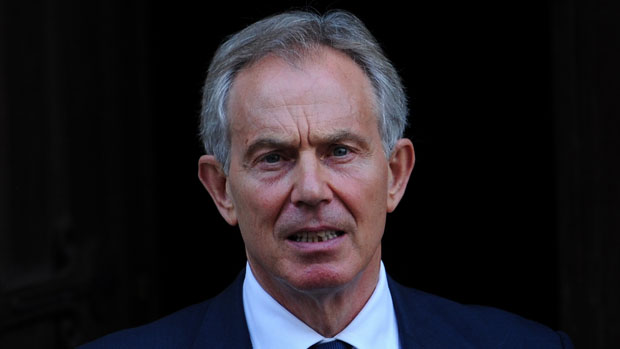Tony Blair quits as Middle East peace envoy after few wins
Middle East correspondents wonder why 'war criminal' became a peace envoy in the first place

A free daily email with the biggest news stories of the day – and the best features from TheWeek.com
You are now subscribed
Your newsletter sign-up was successful
Former British prime minister Tony Blair is to resign as Middle East peace envoy, but few will mourn his departure.
It has been eight years since he was tasked with trying to help forge a peace deal between the Israelis and Palestinians on behalf of the Quartet of Middle East negotiators: the United Nations, the United States, the European Union and Russia.
But Blair's post-parliamentary career in the region has been dogged by criticism over conflicts of interest, a lack of any major accomplishments and the irony of appointing a man tainted by the Iraq war as an envoy for peace.
The Week
Escape your echo chamber. Get the facts behind the news, plus analysis from multiple perspectives.

Sign up for The Week's Free Newsletters
From our morning news briefing to a weekly Good News Newsletter, get the best of The Week delivered directly to your inbox.
From our morning news briefing to a weekly Good News Newsletter, get the best of The Week delivered directly to your inbox.
Senior diplomats told the Financial Times that Blair was being "eased out" of the position, with one calling him "ineffective" and having "no credibility" in the region.
However, sources close to the former Labour leader denied this and said he would remain "fully committed" to making progress on a two-state solution between Israel and the Palestinians without any formal role. One official suggested there had been "frustration" over his limited authority.
Writing in The Independent, Robert Fisk questions why a "war criminal" ever became a peace envoy in the first place and describes the appointment as an insult to Arabs and to Britons who lost loved ones in the Iraq War.
"The man who never said he was sorry for his political disaster simply turned up in Jerusalem four years later and, with a team which spent millions in accommodation and air fares, managed to accomplish absolutely nothing in the near-decade that followed."
A free daily email with the biggest news stories of the day – and the best features from TheWeek.com
The Daily Mail's Michael Burleigh accuses Blair of mixing big business, charity, faith and politics in a way that many regarded as "morally odious" and that left people unsure in what capacity he was appearing.
But Kevin Connolly, BBC Middle East correspondent, says Blair's stint as envoy cannot be written off as a complete failure, largely because of the limited mandate he was given. "His time may not be ending gloriously but it is difficult to hold Mr Blair to account for failure in a region where very few international diplomats have succeeded," he says.
So what next for Tony Blair? The Huffington Post suggests a number of jobs that the 62-year-old might want to consider, including Fifa boss, London Mayor and Labour Party leader – while others think he is setting his sights even higher.
"Blair's legacy is a Middle East more divided, chaotic and sectarian than arguably ever before," says Orlando Crowcroft at International Business Times. "If he is really leaving the Quartet for a wider, more global role then, frankly, God help us all."